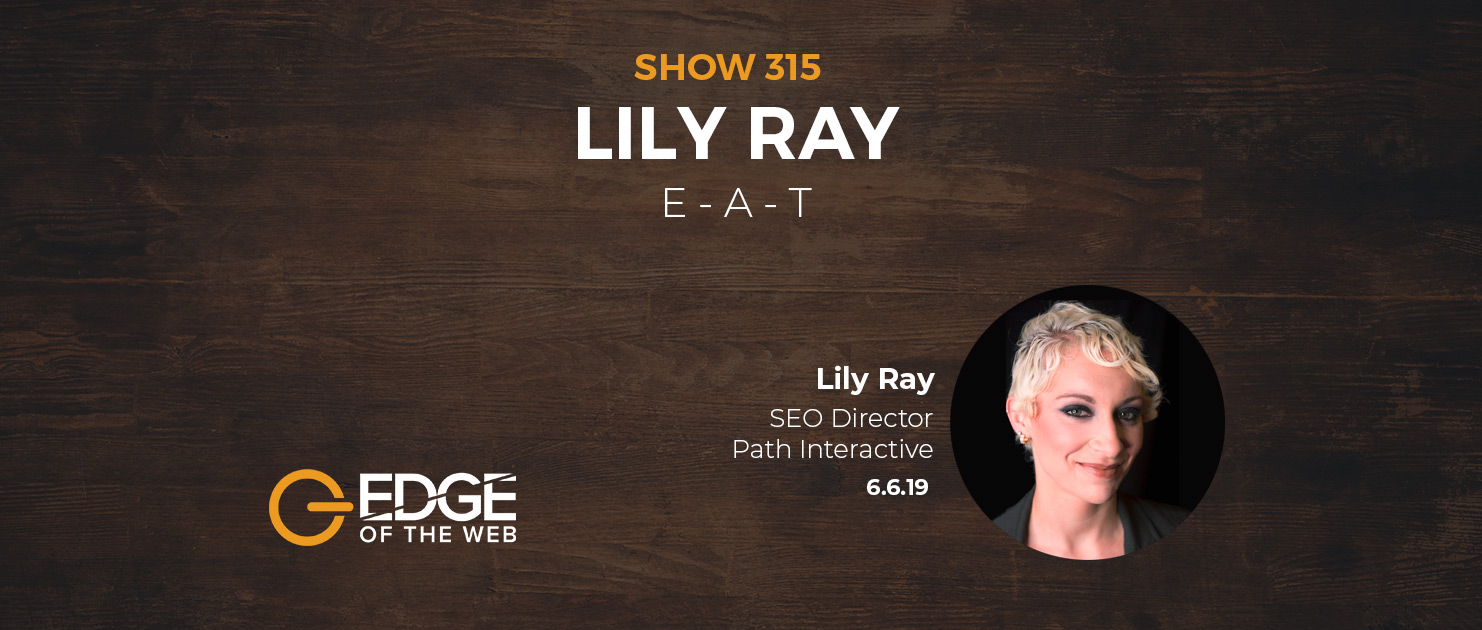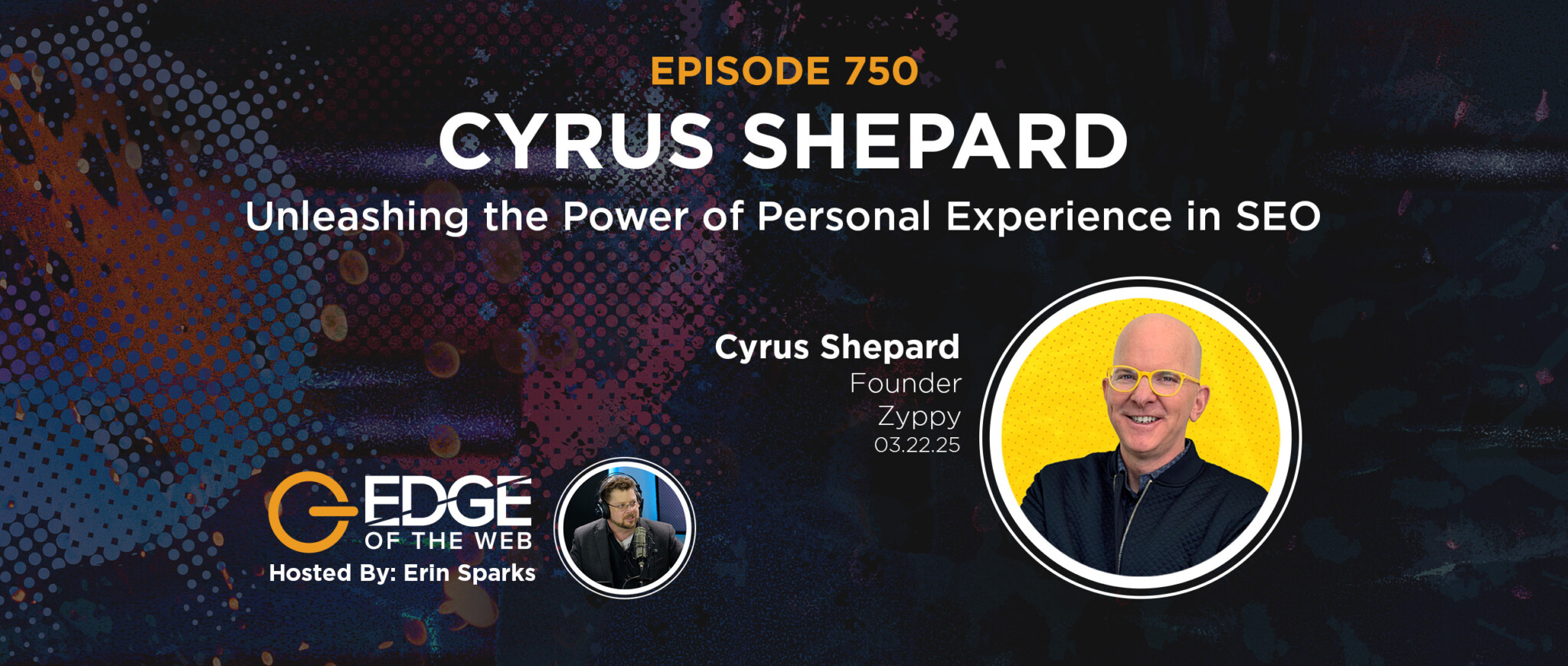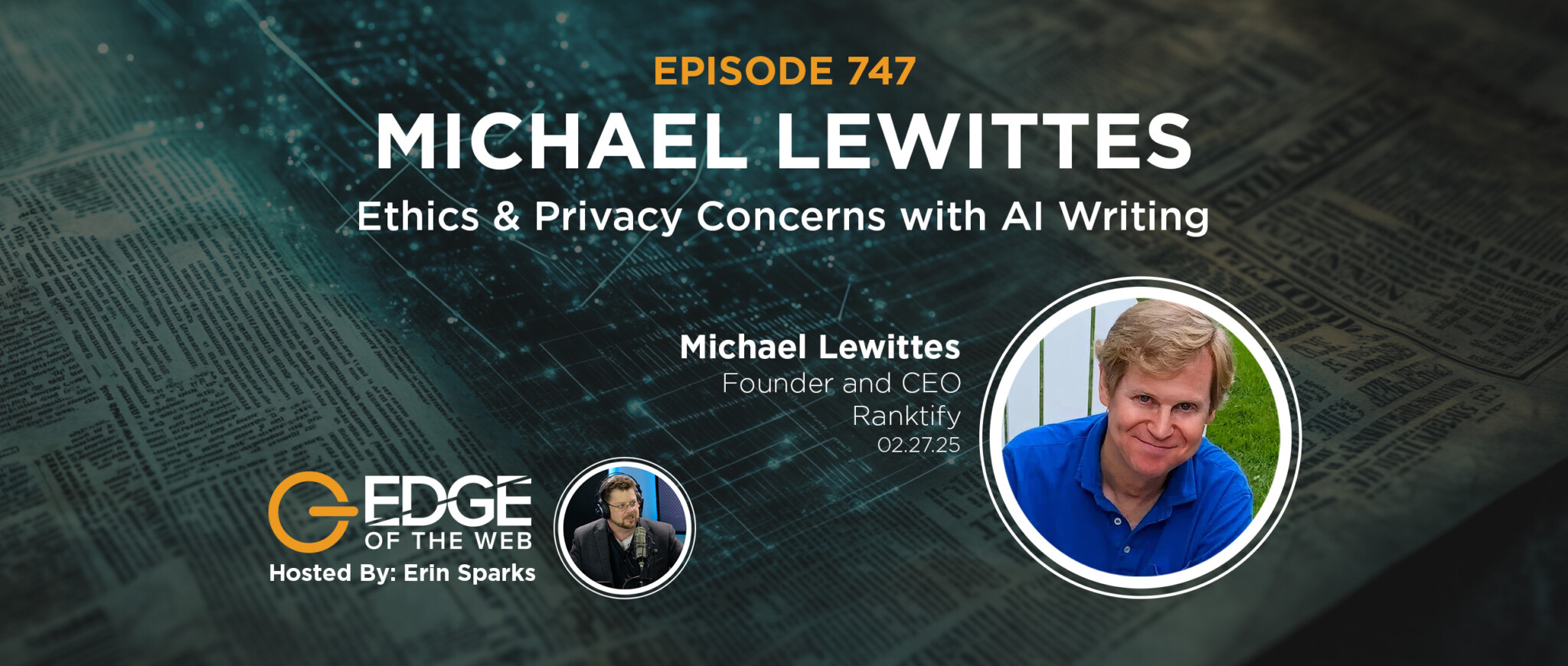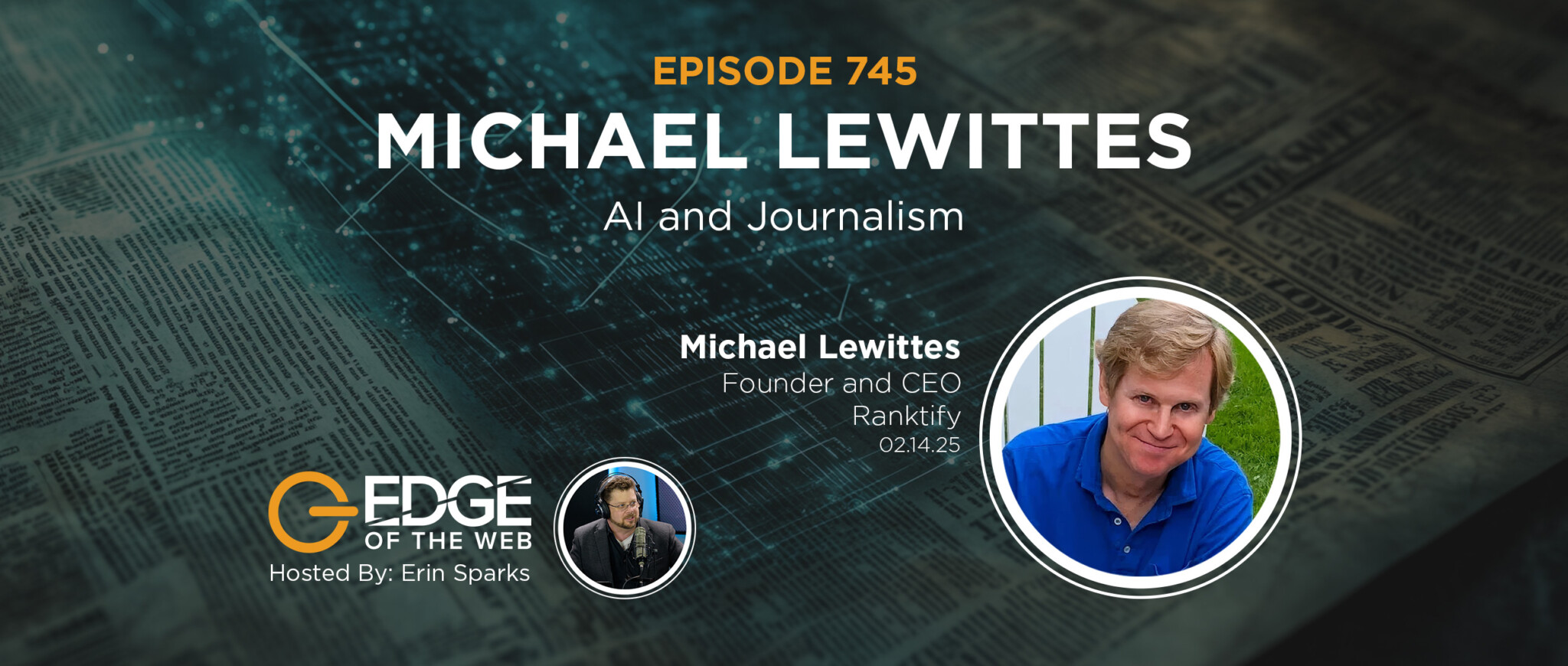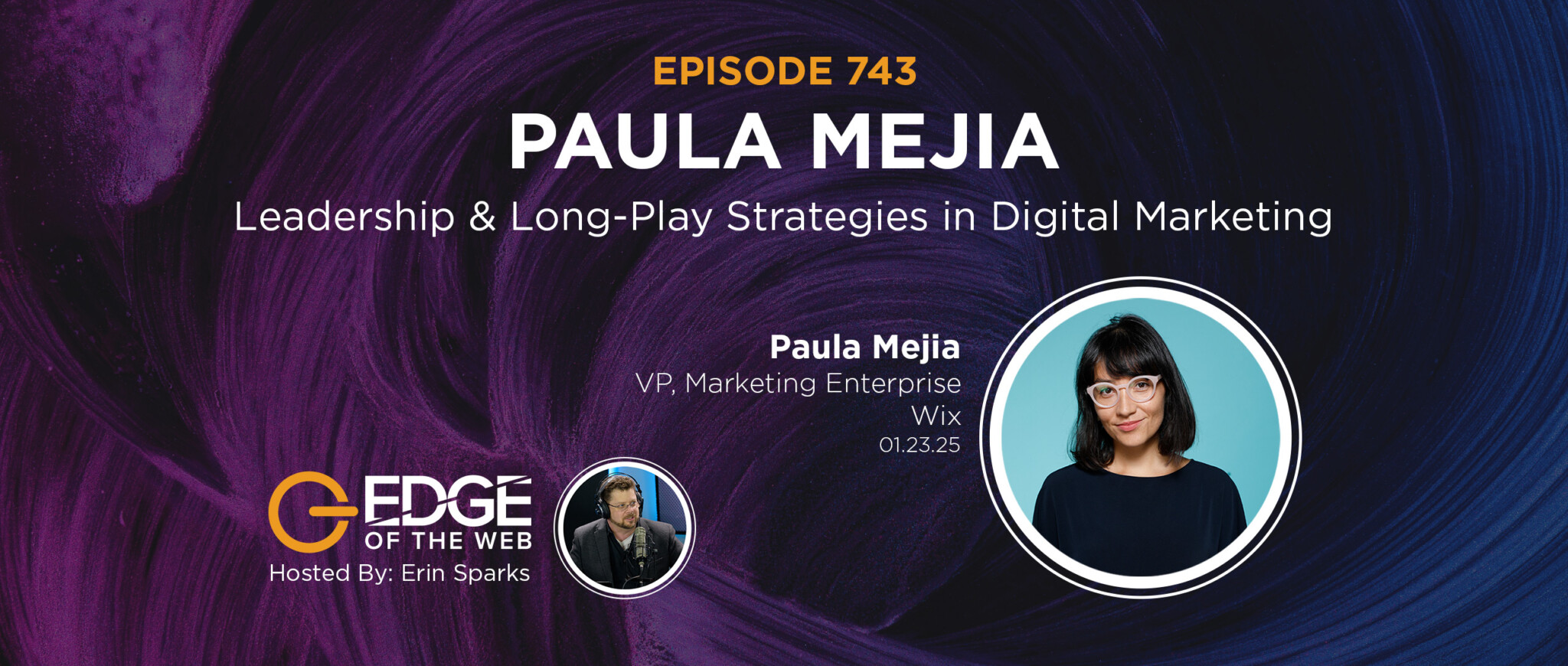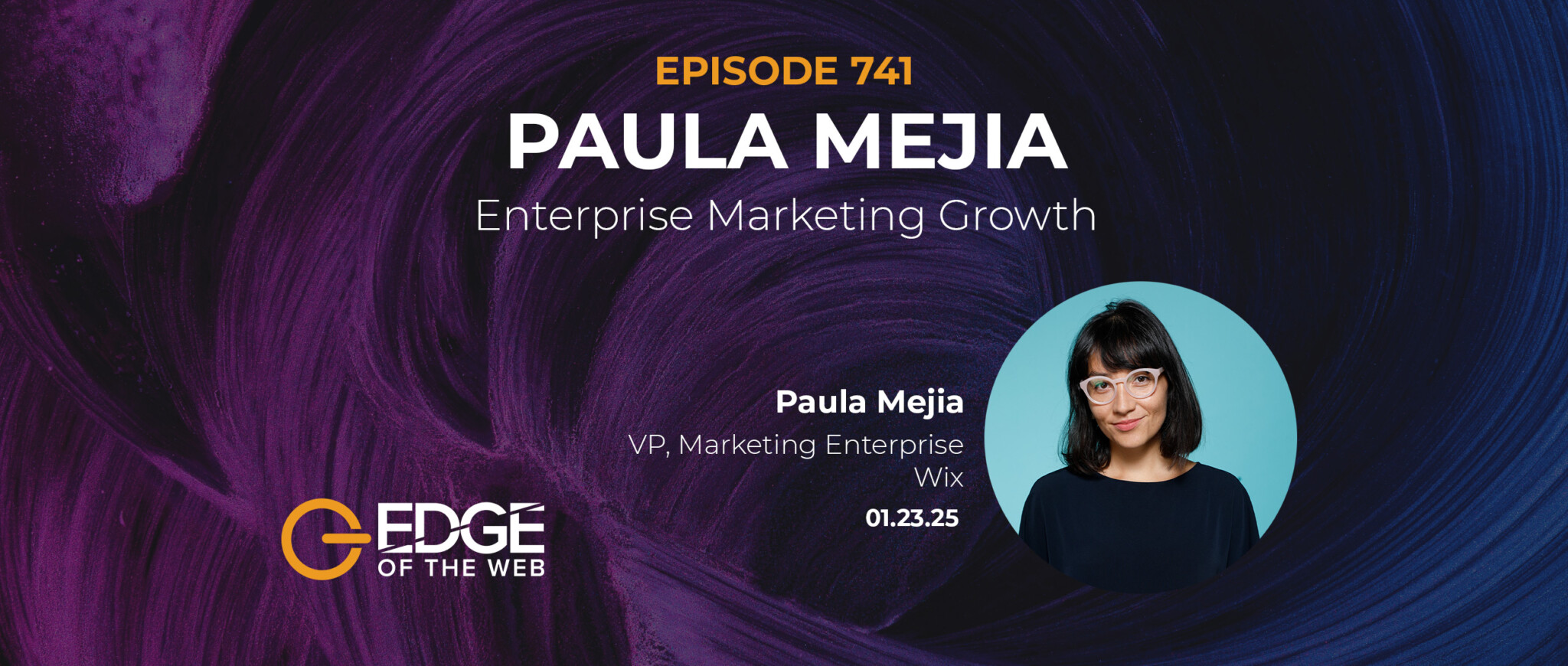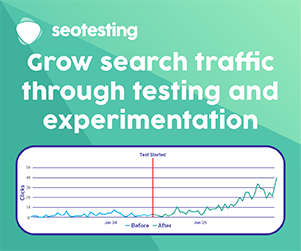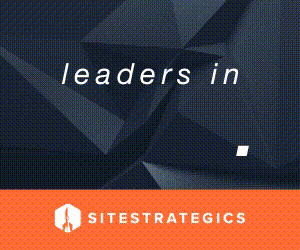Lily Ray, SEO Director at Path Interactive, keeps a close watch on the ever-changing world of SEO, and especially when it comes to keeping up with changes related to E-A-T: Expertise, authoritativeness and Trustworthiness – increasingly important standards Google is using to make sure websites are presenting accurate information. She spoke with Site Strategics CEO Erin Sparks during episode 315 of the award-winning EDGE of the Web podcast. Here’s what we learned:
00:15:13
E-A-T is About the Quality of YMYL Content

Google’s recent focus on E-A-T (expertise, authoritativeness, and trustworthiness) all points back to telling the truth and making sure you have experts behind your content when it matters. Some sites are coming out on top as of recently because they are doing a really good job with E-A-T, and what they’re doing, for example, if they’re a medical site or a very YMYL site (your money or life means content that can affect people’s health and well-being), even if they have junior writers or freelance writers, they have experts collaborate with those writers to put their name behind it. It’s important to know you can still have junior or freelance writers helping produce your content, but you definitely can’t have those people making claims that are not substantiated with real citations and/or written in collaboration with real experts.
The level of scrutiny Google is using to determine what’s high-quality content changes depending on how consequential the content is for people’s lives. If you’re writing an article about heart attacks, you better believe you have to use the most expert possible writers in collaboration with your own writers, at least to review the content. If you’re writing about knitting then there’s going to be lower scrutiny, you can have a stay-at-home mom who loves to knit like an expert and that would be fine.
And there’s an impact here on writers as well. Writers can help Google by creating associations between the content you’ve written, and then having a biography page on the websites where you’re a contributor, and then associating your biography page to maybe your LinkedIn profile, or your Twitter profile, or anything else you’ve written. If you’ve sold 1,000 books on the topic, you should definitely be linking to the place where you sold those books, and providing the credentials to show you’re qualified to write about these topics.
And Google is being really granular with this. Just because you’re an expert on pregnancy doesn’t also make you an expert on fitness. Your biography really has to talk specifically about one niche, but again, this level of scrutiny is really being used more for YMYL websites. If you’re just a person who likes to cook, you can kind of talk or write about it all day long, but Google is upping the ante for content that can have a serious impact on somebody’s health or wellbeing.
00:18:37
E-A-T is Changing and Evolving
In the Google Quality Raters Guidelines published in 2018, the term E-A-T appeared in the document something like 186 times. In the new guidelines that came out on May 16, 2019, E-A-T doesn’t appear nearly as often. But YMYL appears nearly 90 times. Another frequent buzzword on this rise in this version is page quality. But the way Google defines page quality is with E-A-T, so they’re talking about largely the same thing with both terms. On a more technical level, page quality is more about how well the content answers the question that’s being posed by the page, but it does tie back into E-A-T, because if you’re making claims that are vague, and the user is left wondering if something is true or wonders where the information is coming from, and you’re not citing your sources or linking to the place where you got the information, all of this relates to page quality, but it also relates to E-A-T as well.
The sites who are taking E-A-T seriously will have something like a little button where you can click for more information about the author, and a little pop up will appear that says who this person is, where they went to school, all the other publications they’ve written for, and here’s our editorial policy, and here’s how we fact check all of our content.
Other sites are using a grading system where they’ll explain how they’re determining what’s factual and what’s not. If it has been graded red, then it means they included the source, but it doesn’t really meet our criteria for extremely well-fact-checked content. If it’s yellow, it’s somewhere in the middle. If it’s green, they definitely feel good about the facts behind the article. In other words, websites are beginning to police themselves, which is a great development. And they’re doing it in ways that still keep everything user-friendly but add in this whole layer of credibility.
00:25:27
Assessing Your Site’s E-A-T
As of right now, there don’t appear to be any decent tools to help you assess how well a website or its individual pages are doing on E-A-T. There’s an opportunity there for someone to make a killing. For now, it’s a very intensive manual review process, but there are some tools that help:
- Wayback Machine: You’re able to look at different points in time and see what the content looked like before it was hit with an algorithm update, because a lot of times if you go and look at the content now these companies have already made significant changes, so you can’t use only the current iteration of the page to learn what happened, you have to go back in time.
- Diff Checker is good for text analysis in terms of figuring out what content has been added or removed.
- Ahrefs is amazing for link analysis to cross-reference and identify spammy or untrustworthy links.
- Botify has some great content analysis capabilities, like looking at duplicate content throughout a website. A medical, or YMYL website wants to have as much unique content as possible.
- Sitebulb can give you sentiment analysis of content, as in does this has a positive tone, or a negative tone, or things like that.
00:25:27
Simple Steps to Improve Your Site’s E-A-T
There are lots of things people can do to improve E-A-T on the pages and sites:
- About Page: You’d think this is a no-brainer, but you’d be surprised how many sites still don’t have this kind of basic page that builds credibility. Talk about who your company is, why you should be trusted, your company history, who works there, what your mission is, and so on.
- Authorship: Identify your authors, why they should be trusted, link to the author’s bio page on your website where users can learn more about the author.
- Avoid Affiliate Links: If your websites fall under the umbrella of YMYL, having affiliate links to various products just don’t look good. In general, you want to avoid trying to sell products through the content. You run the risk of being demoted for it in rankings. You can still do it, but you have to be very clear and transparent about it or make sure the content isn’t YMYL.
Remember when SEOs and digital marketers lived by the mantra that “content is king” and hired tons of junior copywriters to just churn out the content? If Google considers your site to be YMYL, you can’t do that anymore because you have to E-A-T at the Goog’s table! You’ve got to figure out how to get the experts involved and collaborate on the content. What Google doesn’t want is content written by people who are just re-writing other content from the internet. They want to see the credibility of authorship for E-A-T.
E-A-T matters because people are using Google to get information rapidly, and they’re relying on Google for very important decision-making in their lives, so you have to provide expert content to Google to be able to compete, and to be able to provide people with the content they’re looking for, and maintain trust with the search engine, as well as with the companies that are offering content in the search engine. For SEOs, stop trying to spam Google and instead do the right thing – E-A-T!
Connect with Lily Ray, SEO Director at Path Interactive
Twitter: @lilyraynyc (https://twitter.com/lilyraynyc)
LinkedIn: https://www.linkedin.com/in/lily-ray-44755615/
Website: http://lilyray.nyc
Path Interactive: https://www.pathinteractive.com
PI Twitter: @PathInteractive (https://twitter.com/PathInteractive)
PI Facebook: @pathinteractive (https://www.facebook.com/pathinteractive/)
PI LinkedIn: https://www.linkedin.com/company/path-interactive/
Site Strategics and Your Digital Marketing ROI
If you’d like to find out the truth about whether or not your digital marketing efforts are paying off, Site Strategics can help! Find out how you’re really doing with EDGE sponsor Site Strategics and a Digital Marketing ROI Report that examines your existing SEO, content, social media, and PPC. Visit https://edgeofthewebradio.com/roi/ to get 30% off a comprehensive review of your digital assets!



